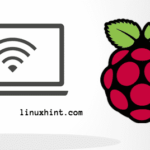Why is this preferred?
The reason for this type of software is all about optimisation. You start with only the most basic features and add all that you want to have. Since you start from almost barren, you will end up with only the features you want. This is more efficient compared to stripping out unnecessary features. You might realise that you also end up putting up a lot of work to get setup and you must know enough programming to add patches to existing code and troubleshoot problems in C.
What can you control?
In most systems, systemd being the most common, you have one package that takes care of start, stop and daemon control. When you want to minimise and speed things up, you can pick sinit and a choice of daemon controller to suit your needs. To do this, you must know enough about the Linux system. Once you have a daemon that you can tweak, you just need to know the pieces of your system. Since you cannot control anything but start and stop, you have to start one daemon or choose a daemon controller.
What daemon?
The suckless website suggests that you use the daemon tools from Untroubled.org. This software is written for any *Nix system so you can use the knowledge even outside of Linux. Using daemontools-encore is a chapter of itself but simply put, the package will make any script a service. You can put the files anywhere but the directories must be reachable when daemontools start. Any file systems it is on must therefore be mounted earlier by other scripts. To compile this package, you need to create a new makefile. Otherwise, this package is a standard way to compile C code. If you don’t compile C code on a regular basis, you should use this as practice. Do not try on your live system.
A safe way to test it.
One safe way to test this is to download a minimal Linux system and run it in a virtual machine. If you do, create a source directory and add sinit, sbase and daemontools-encore. With these three binary packages, you can build the whole system of boot and daemon control. Current systems are started with systemd. When you start creating a new system, you need to transfer any daemons you need and run them as a simple script. Since systemd already runs scripts this will be mostly the same scripts. What you need to add manually are the dependencies between the processes. If you really want to make minimal system, you can.
Blistering fast, why is it not used in most machines?
Once a system runs using sinit, it will be blistering fast. The reason is that you will have only the exact system you need and nothing else. You may wonder why is it not used across the board. The reasons are multiple, one is that systemd is already complete and it keeps track of the complex interactions between processes. If you use sinit, you will have to build more logic around these dependencies. A logic that is already in systemd. There are also very tight integration between GNOME and systemd so these systems support each other. Most situations are covered simply because they have been developed in parallel.
Conclusion
Using sinit, you can create a very fast booting system. You will have many choices on how to keep your system balanced and all the processes active and supervised. However, you will have to do a lot of work to get a full system running with all the bells and whistles. For most of us this can be an exciting project to learn how Linux and other *Nix systems work but we will need the standard distribution for our “Production systems”






